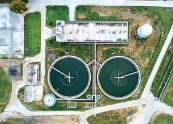2.4 Empowering Rural Dreams: Employment Generation
NABARD has made employment generation a key focus of its financial support programmes. It has significantly contributed to creating both recurring and non-recurring job opportunities in rural regions by facilitating investments from both public and private sectors. NABARD provides financial assistance, credit facilities, and capacity-building programs aimed at empowering rural communities, institutions, small enterprises, and self-help groups.
Key Areas Contributing to Employment Generation
Rural Infrastructure
Roads & Bridges, Irrigation Projects, Social Sector Projects
Fostering Private Investment
Plantation & Horticulture, Irrigation, Storage & Market Yards, Animal Husbandry, Watershed Development, Wadi (Orchard) Development
Rural Enterprises
Micro Enterprises, Skill Development & Marketing, Infrastructure, Rural Haat
NABARD’s Development Initiatives that helped Generate Employment
Schemes
Rural Infrastructure Development Fund (RIDF)
Objectives
To support public sector capital investment in rural infrastructure through providing low-cost fund support to State Governments and State-Owned Corporations
Impact (as of 31 March 2024)
Employment Generation (non-recurring) :
30.96 billion person-days.
Schemes
NABARD Infrastructure Development Assistance (NIDA)
Objectives
To fund the State Govt. /State owned/ Central Govt. Owned institutions for creation of rural infrastructure which facilitates better communication, connectivity, irrigation, social infrastructure and credit absorption capacity in rural areas.
Impact (as of 31 March 2024)
Employment Generation (non-recurring)
Non-Recurring- 183.55 million & Recurring- 25.63 million
Schemes
Food Processing Fund (FPF)
Objectives
To provide impetus to development of food processing sector on cluster basis in the country to reduce wastage of agricultural produce and to create employment opportunities, especially in rural areas.
Impact
These projects have significantly enhanced farmer incomes and generated direct and indirect employment opportunities in processing, logistics, and retail.
Schemes
Fisheries and Aquaculture Infrastructure Development Fund (FIDF)
Objectives
FIDF envisages creation of fisheries infrastructure facilities both in marine and inland fisheries sectors and augment the fish production.
Impact
Generation of employment opportunities for sea-going fisherfolk and people in shore-based establishments.
Schemes
Refinance and Rural Credit
Objectives
Long-term refinance (18 months and above) provides investment credit which leads to capital formation through asset creation and promotes alternate employment opportunities in rural and semi urban areas by supporting the farm and off-farm sector activities.
Special Long-Term Refinance for Micro Food Processing Activites.
Supports rural livelihoods and employment for youth and reverse migrants.
Impact
Employment Generation in long-term refinance to MSMEs during 2023-24 - 3.37 million
Schemes
Watershed Development Fund (WDF)
Objectives
Promote participatory watershed development, unifying various watershed initiatives into a cohesive national program.
Impact
Creation of Employment through:
- Construction of soil and water conservation structures.
- Project management, repairs, and maintenance activities create numerous job opportunities
Capacity building of members and farmers enhances their skills and knowledge.
Schemes
Tribal Development Fund (TDF)
Objectives
Create replicable models of integrated development of tribal families on participatory basis, through adoption of sustainable income generating activities based on potential of the area and the tribal needs.
Impact
Benefited - 0.63 million tribal families living across 0.59 million acres.
Cumulatively, 29 million trees (approx.) have been planted.
Employment generation through:
- Micro enterprise development
- Training and capacity building
- Women empowerment
- Promotion of on farm and off farm activities
Schemes
Adaptation Fund (AF), National Adaptation Fund for Climate Change (NAFCC), Green Climate Fund (GCF)
Objectives
The Adaptation Fund aims to finance project and programmes to help developing countries to adapt to the challenges posed by climate change.
NAFCC aims to meet the cost of adaptation to climate change for the State and Union Territories of India that are particularly vulnerable to the adverse effects of climate change.
Green Climate Fund aims to promote a paradigm shift towards low emission and climate-resilient development pathways by providing support to developing countries to limit or reduce their greenhouse gas emissions and to adapt to the impacts of climate change, considering the needs of those developing countries particularly vulnerable to the adverse effects of climate change.
Impact
A total of 8, 30 and 2 projects are completed under AF, NAFCC, and GCF respectively, which helped generate direct and indirect employment.

Schemes
Livelihood and Enterprise Development Programme (LEDP), Micro Enterprise Development Programme (MEDP) and Skill Development Programme (SDP)
Objectives
LEDP: To enhance the capacities of Self Help Group members through skill upgradation, exposure visits, demonstrations, and support for livelihood activities
MEDP: To foster sustainable livelihood among rural communities by providing skill development and capacity-building opportunities.
SDP: In tune with Govt. of India’s goal, NABARD supports skill development programmes through a structured approach for addressing the skill gaps in rural India through demand and outcome-based programmes through multiple stakeholders in skill development ecosystem leading to wage/self-employment. NABARD has developed a digital platform “NABSKILL” (www.nabskillnabard.org) enabling complete digitalisation of skill interventions.
Impact
- Skill Enhancement
- Micro-Enterprise Creation
- Market Integration
- Cluster-Based Employment
Schemes
Rural Self Employment and Training Institutes (RSETIs)
Objectives
To provide skill training and mentorship to rural unemployed youth, fostering entrepreneurship and contributing to economic prosperity. RSETIs were established in January 2009 by the Ministry of Rural Development (MoRD) to address the issue of unemployment among rural youth by providing them with quality residential training and post-training support.
NABARD’s Role: Scheme to develop Learning Management System for Rural Self Employment Training Institutes (RSETIs)
E-Learning Platform: The project, being implemented in collaboration with the National Academy of RUDSETI and IIT Madras, aims to improve skills training towards greater financial inclusion by building an e-learning platform for RSETIs. This platform will offer 64 courses in 11 languages, providing 4,400 hours of video content for skill development.
Impact
Targeted age group: Provide free skill training and mentorship to rural unemployed youth aged 18 to 45 years.
Annual Impact: It aims to enhance the capabilities of approximately 0.6 million rural trainees annually, fostering entrepreneurship and contributing to economic prosperity.
Capital expenditure support to RSETIs/RUDSETIs: A one-time grant support up to a maximum of ₹0.45 million per RSETI/RUDSETI is provided for the purchase of training equipment and maintenance.
Schemes
Self-Help Group – Bank Linkage Programme (SHG-BLP)
Objectives
To empower members, especially women, by promoting savings, providing access to credit, and fostering social cohesion for sustainable livelihoods and community development.
Impact
Shift from non-income generating to production activities, reduced transaction costs, increased income levels, and significant contributions to poverty alleviation and women’s empowerment
Schemes
Joint Liability Groups (JLGs)
Objectives
To empower landless farmers, tenant cultivators, and small artisans by providing collateral-free credit, enabling them to engage in diverse farm and non-farm activities.
Impact
Enables marginalised communities to engage in diverse farm and non-farm activities, promoting self-employment and economic resilience.
Schemes
Farmer Producer Organisations (FPOs)
Objectives
The objective of FPOs is to empower farmers by enhancing their collective strength, improving their access to quality inputs, technology, credit, and better marketing opportunities through economies of scale.
Impact (As on 31 March 2024)
- 7355 FPOs sanctioned
- 6,056 registered
- 2 million farmers covered as shareholders
- About 82% are small and marginal farmers, and 30% are women
Schemes
Off-Farm Producer Organisations (OFPOs)
Objectives
Promote rural enterprises, mechanisation, technology adoption, and market linkages for sustainable and inclusive development.
Impact
Cumulatively, 25,922 beneficiaries, of which 18 all-women organisations with 6,890 members covered.
Employment generation by
- Supporting rural artisans and small-scale producers.
- Promote mechanisation, technology adoption, and establishing market linkages for sustainable livelihoods.
Schemes
Geographical Indications (GI) registration
Objectives
GI is a form of Intellectual Property Rights that identifies goods originating from a specific geographical location.
Products
GI-tagged in FY2024 include Sambal Horn Craft (Uttar Pradesh), Tangsa Textile Products (Arunachal Pradesh), Basohli Pashmina Woollen Products (Jammu & Kashmir), Majuli Mask (Assam), Bikaner Kashidakari Craft (Rajasthan), and Risa Textiles (Tripura).
As of 31 March 2024, NABARD has supported pre & post GI registration activities of 300 products, of which 138 products have been GI-registered.
Impact
The GI registration has helped in better price realisation to the artisans, thereby providing better employment opportunities in alignment with One District One Product (ODOP) program of GoI.







